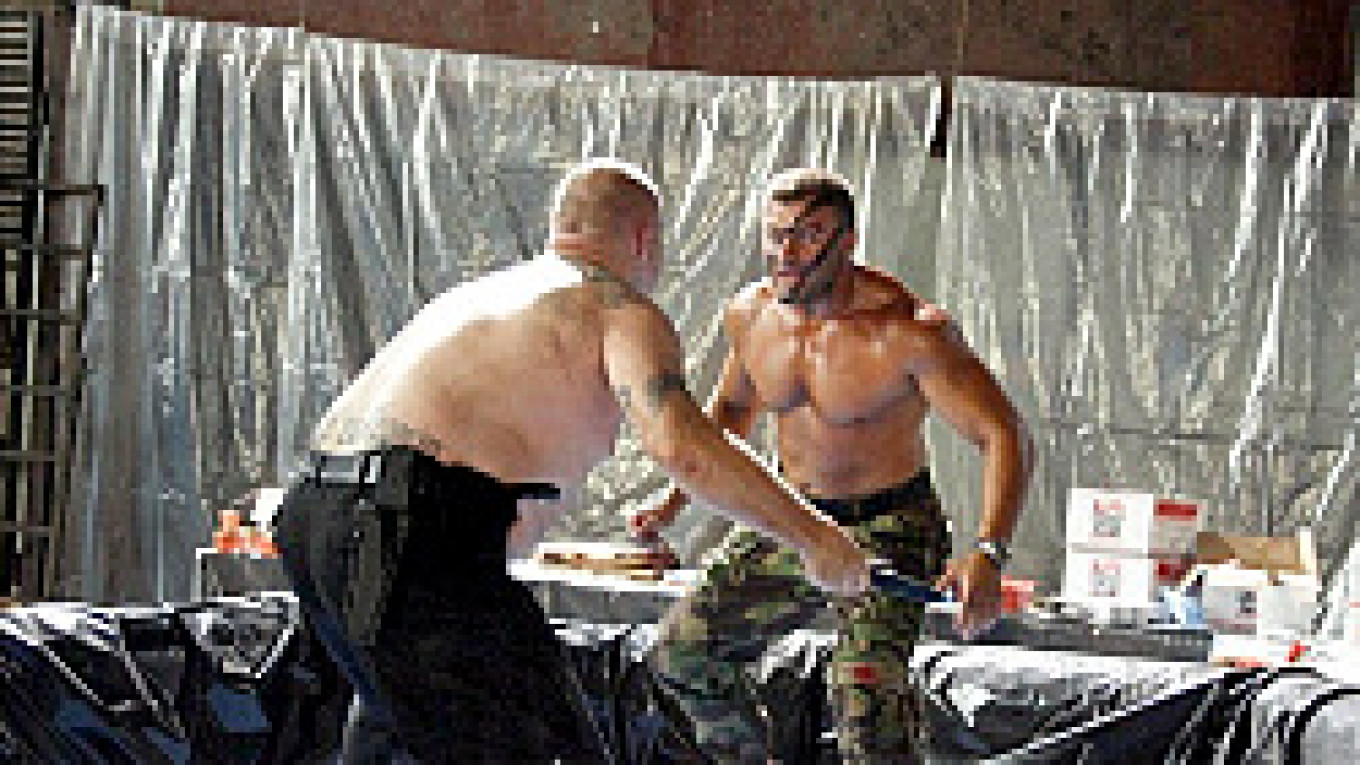Eminently watchable, and equally forgettable, it's a debut from Porechenkov, who started as a stage actor before coming to national attention in television series "Security Service Agent," and more recently Fyodor Bondarchuk's blockbuster, "Company 9." In most, he's played the kind of hard guy that he plays here.
In "D-Day" -- the Russian title alludes to an annual parachutists' holiday -- he plays Ivan, a retired Air Force major who's been through the conflicts of the 1980s and the difficult years of the 1990s, and is now living in what looks like remote rural bliss with his daughter. Clearly, he's not escaped the world altogether, as first a group of old military friends copters in and then he's visited by the enemies, who have a task for him -- and to make sure he carries it out, they kidnap his daughter.
The task is no less than to assassinate the president of a foreign country on behalf of interests that don't seem fully explained. The country appears to be Estonia, although it could just as well be any of Russia's fractious neighbors -- if the film was being made now it would be easy to guess the candidate of the moment. Action appears to span the continent; geographical locations may be clear (relatively), but that isn't true of some of the plot development.
And if you think you've heard this story before, it's because you have -- namely from 1985's "Commando," starring Arnold Schwarzenegger. Two decades on, it's rescripted with distinctly individual results by respected young theater dramatists the Presnyakov brothers.
That's not the only film reference, either. Clips from, or allusions to a variety of directors -- from Tarkovsky to Tarantino -- crop up throughout the movie, though clearly it's the latter who is closer to the scripters' hearts. Visual style, most noticeably editing, looks like it owes a lot to early work by Britain's Guy Ritchie, a debt that to this critic did not always seem a compliment.
It's not clear whether it's intended as a parody of Ritchie, a parody of the action-adventure movie or indeed a parody of itself. You rather hope it's a parody of something, or at least on occasions intentionally absurd, because, if not, it might look just dire. It can only be assumed that the director knew what he was getting himself in to.
Porechenkov himself shows off his muscles on more than one occasion, and his skills include parachuting and snow boarding. Car chases abound, as does a car explosion carried out by cellphone (another film allusion). The only thing he appears not to do himself is fly the plane in the closing scenes, a role deputed to the comely female sidekick he's acquired along the way. Predicting how it's all going to end isn't difficult, but it's enlivened by a lunatically energetic Japanese character -- clearly the Presnyakovs like that kind of character, given that one such featured heavily in their play, later filmed by Kirill Serebrennikov, "Playing the Victim."
Scattered widely enough in between the stunts is humor of a kind that appeals well enough, even if you don't get what may be the in-jokes. As for understanding the film's take on national ideology -- well, don't even think about it.
A Message from The Moscow Times:
Dear readers,
We are facing unprecedented challenges. Russia's Prosecutor General's Office has designated The Moscow Times as an "undesirable" organization, criminalizing our work and putting our staff at risk of prosecution. This follows our earlier unjust labeling as a "foreign agent."
These actions are direct attempts to silence independent journalism in Russia. The authorities claim our work "discredits the decisions of the Russian leadership." We see things differently: we strive to provide accurate, unbiased reporting on Russia.
We, the journalists of The Moscow Times, refuse to be silenced. But to continue our work, we need your help.
Your support, no matter how small, makes a world of difference. If you can, please support us monthly starting from just $2. It's quick to set up, and every contribution makes a significant impact.
By supporting The Moscow Times, you're defending open, independent journalism in the face of repression. Thank you for standing with us.
Remind me later.


